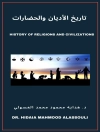In 'An Apology for the True Christian Divinity, ’ Robert Barclay presents a compelling defense of Quaker theology against prevailing religious doctrines of the 17th century. The book is structured as a systematic exposition of the Quaker faith, employing a blend of philosophical reasoning and scriptural references to elucidate the inner experience of divinity. Barclay’s literary style is marked by clarity and conviction, utilizing rational discourse to confront theological critiques while emphasizing the importance of personal revelation and inner light. Written during a tumultuous period of religious upheaval, this work serves as a significant historical document reflecting the broader context of the Protestant reformations and the emerging Quaker movement. Robert Barclay (1648-1690), a prominent Quaker theologian and apologist, was inherently motivated to write this book due to the persecution faced by the Quakers. His upbringing in a well-to-do family in Scotland afforded him a significant education, allowing him to articulate the principles of Quakerism articulately. Barclay’s dedication to defending the Quaker belief system stemmed from a deep commitment to religious plurality and freedom, rooted in his experiences of discrimination. This seminal work not only provides profound insights into the foundations of Quaker thought but also serves as a timeless invitation for readers to explore the nature of spiritual truth and personal faith. Scholars, theologians, and seekers alike will find Barclay’s arguments compelling and his intentions noble, making this book a must-read for anyone interested in the evolution of Christian thought.
O autorze
Robert Barclay (1648-1690) was a renowned Scottish Quaker theologian, best known for his seminal work, 'An Apology for the True Christian Divinity’. Published in Latin in 1676 and later translated into English in 1678, this treatise firmly established Barclay as a leading apologist for the Religious Society of Friends, commonly known as Quakers. His meticulous defense of Quaker theology laid the groundwork for the wider acceptance and understanding of Quaker principles during a time of religious turmoil in England. Barclay’s 'Apology’ systematically presents the beliefs of the Quakers, advocating for spiritual inner light as the direct experience of God’s presence and dismissing the necessity of ordained clergy. This comprehensive work still stands as a cornerstone of Quaker literature and reflects Barclay’s scholarly and measured approach to religious discourse. As the son of a Scottish Laird and a descendant of an old Scottish family, Barclay’s intellectual rigor was matched by the influence he wielded in both religious and social spheres. His authorship displays a blend of deep conviction and innate erudition, embodying the earnestness with which Quakers of his era approached their faith. Barclay’s contribution to Christian literature cannot be overstated, as his writings continue to influence the theological frameworks and spiritual reflections within Quakerism and Christianity at large.









